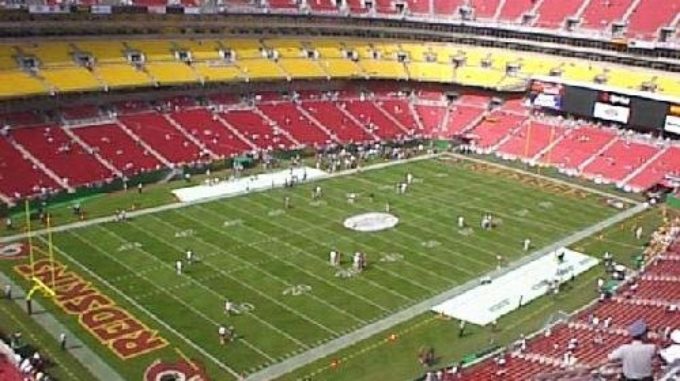
ACLU Files Amicus Brief in Support of Washington Redskins’ Trademarks
By Amanda Liverzani – Edited by Yunnan Jiang
Football season may be over, but the trademark battle over the Washington Redskins’ team name, mascot, and logo is raging on in federal court. The NFL team has faced heated controversy over its continued use of the term “Redskins,” which is considered by some to be an offensive racial slur for Native Americans. See Redskins Forever?, The New Yorker (May 10, 2013), http://www.newyorker.com/news/sporting-scene/redskins-forever.
On March 5th, the ACLU filed an amicus brief in Pro-Football, Inc. v. Amanda Blackhorse et al. supporting the NFL team’s right to register six trademarks (the “Redskins marks”). The matter is currently before the United States District Court for the Eastern District of Virginia, following an appeal by Pro-Football, Inc. (d/b/a the Washington Redskins) of a June 2014 order by the Trademark Trial and Appeal Board (“TTAB”) of the U.S. Patent and Trademark Office (“PTO”) cancelling the Redskins marks. Brief of American Civil Liberties Union et al. as Amici Curiae Supporting Plaintiff, Pro-Football, Inc. v. Amanda Blackhorse et al., No. 12-1043 (E.D. Va. Mar. 5, 2015) ECF No. 76-2 (henceforth “Brief”).
In rejecting the Redskins marks, the TTAB relied on Section 2(a) of the Lanham Act which prohibits registration of any trademark consisting of “immoral, deceptive, or scandalous matter; or matter which may disparage or falsely suggest a connection with persons, living or dead, institutions, beliefs, or national symbols, or bring them into contempt, or disrepute,” 15 U.S.C. § 1052(a), ultimately finding that the Redskins marks were disparaging to Native Americans, Blackhorse v. Pro-Football, Inc., 111 U.S.P.Q.2d 1080, 2014 WL 2757516, at *29(T.T.A.B. 2014).
In its amicus brief, the ACLU argued that Section 2(A) violates the First Amendment because it permits government regulation of private expression based on disfavored viewpoints. Brief at 4. Trademarks are constitutionally protected forms of expression, according to the ACLU, because of their ability to “define a group identity, engage in parody, communicate a political opinion, convey artistic ideas, or spark controversy.” Id. at 7. The ACLU urged the court to rule that the portions of the Lanham Act allowing the PTO to deny registration of those trademarks it classifies as “immoral, deceptive, or scandalous” are unconstitutional because they permit viewpoint discrimination and restriction of private expression. Id. at 3.
The ACLU further argued that the court should strike down Section 2(a) because it is unconstitutionally vague and overbroad which may result in arbitrary, discriminatory, or inconsistent applications. Id. at 13–19.
In a post on the ACLU’s blog, staff attorney Esha Bhandari reiterated that the ACLU considers the Washington Redskins’ name disparaging to Native Americans, but criticized what it views as the government’s attempts “to play language police.” Esha Bhandari, 'You're Not Wrong, You're Just an A**hole.' ACLU Blog of Rights (Mar. 6, 2015), https://www.aclu.org/blog/free-speech/youre-not-wrong-youre-just-ahole. Bhandari highlighted the ACLU’s history of defending the First Amendment rights of groups it disagrees with, and emphasized the value of “reappropriation of terms that have historically disparaged marginalized groups.” Id.
Media coverage of the ACLU’s position in the Washington Redskins’ trademark litigation is available at the Washington Post, Politico, and NPR.
Amanda Liverzani is a 2L at the Harvard Law School.